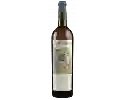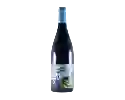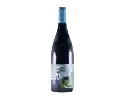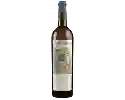
Winery Mas du ChêneSangiovese
This wine generally goes well with pork, poultry or beef.
Food and wine pairings with Sangiovese
Pairings that work perfectly with Sangiovese
Original food and wine pairings with Sangiovese
The Sangiovese of Winery Mas du Chêne matches generally quite well with dishes of beef, veal or pork such as recipes of autumn beef bourguignon, milanese osso buco or pork roulades with cream and mushrooms.
Details and technical informations about Winery Mas du Chêne's Sangiovese.
Discover the grape variety: Sangiovese
Originally from Italy, it is the famous Sangiovese of Tuscany producing the famous wines of Brunello de Montalcino and Chianti. This variety is registered in the Official Catalogue of Wine Grape Varieties, list A1. According to recent genetic analysis, it is the result of a natural cross between the almost unknown Calabrese di Montenuovo (mother) and Ciliegiolo (father).
Last vintages of this wine
The best vintages of Sangiovese from Winery Mas du Chêne are 2017, 2015, 2016
Informations about the Winery Mas du Chêne
The Winery Mas du Chêne is one of of the world's greatest estates. It offers 21 wines for sale in the of Gard to come and discover on site or to buy online.
The wine region of Gard
The wine region of Gard is located in the region of Pays d'Oc of Vin de Pays of France. Wineries and vineyards like the Domaine Roc d'Anglade or the Domaine Mas des Bressades produce mainly wines red, white and pink. The most planted grape varieties in the region of Gard are Merlot, Cabernet-Sauvignon and Mourvèdre, they are then used in wines in blends or as a single variety. On the nose of Gard often reveals types of flavors of cream, green apple or honeysuckle and sometimes also flavors of nutmeg, cheese or orange.
The wine region of Pays d'Oc
Pays d'Oc is the PGI for red, white and rosé wines that are produced over a wide area of the southern coast of France. The PGI catchment area corresponds roughly to the Languedoc-roussillon">Languedoc-Roussillon wine region, one of the largest wine regions in France. The area covers all wines that are not produced under the strict laws that govern AOC-level appellations in the regions: among them, Corbières, Minervois and the Languedoc appellation itself. The Pays d'Oc PGI is arguably the most important in France, producing the majority of the country's PGI wines.
The word of the wine: Dry extract
Non-liquid constituents of wine.













